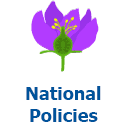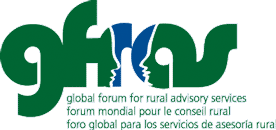In Honduras, women face high rates of discrimination and lack equal access to resources and services as compared to men. Gender inequality is intimately linked to nutrition, poverty, and agriculture, and all four issues often reinforce one another. For example, greater gaps in gender equality are associated with higher rates of malnutrition. When individuals have poor nutrition, their health and ability to work are affected, leading to lower incomes and reinforcement of poverty. These associations have serious implications on the local and national economy and human rights.
 Every country has developed, formulated, and decreed national policies related to rural advisory services. Find some examples here. If you are looking for a national policy from a specific country, please use the search function, selecting the category “National policies” and the tag for the country.
Every country has developed, formulated, and decreed national policies related to rural advisory services. Find some examples here. If you are looking for a national policy from a specific country, please use the search function, selecting the category “National policies” and the tag for the country.
Monday, 23 April 2018 15:10
Knowledge, Attitudes and Practices Surrounding Nutrition among Extension Institutions and Their Beneficiaries in Honduras
Written by Ingrid OliveiraDownload here3440 times downloaded
Published in
Case Studies
Tagged under
Latest from Ingrid Oliveira
- Sustainable Undernutrition Reduction in Ethiopia: Training manual for Health and Agriculture Development Armies
- What Every Extension Worker Should Know - Core Competency Handbook
- Sustainable Nutrition Manual Part 3: Healthy Designs
- Sustainable Nutrition Manual Part 2: Healthy Environments
- Sustainable Nutrition Manual Part 1: Healthy Humans


